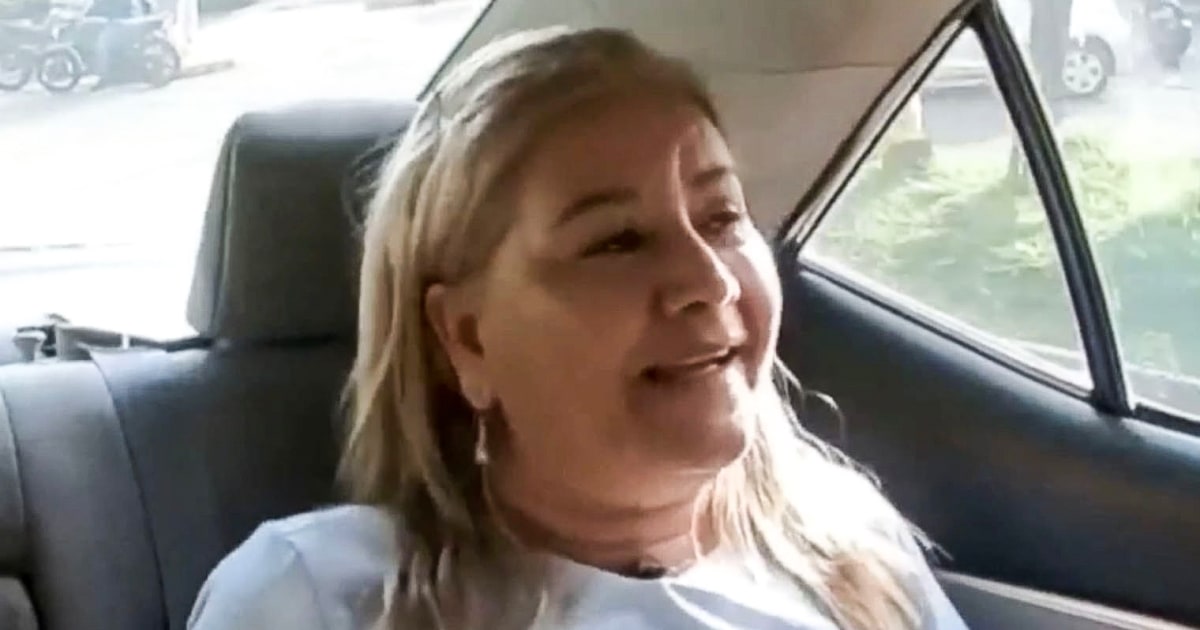
Martha Sepúlveda Campo, a 51-year-old Colombian, smiles at the television camera while joking with her son and having a beer to celebrate: This Sunday, Oct. 10, she will die by euthanasia.
“From the spiritual level, I am totally calm,” said Sepúlveda, who defines herself as “a Catholic person, very believing,” in an interview with the Colombian television network Noticias Caracol.
Sepúlveda will be the first patient with a nonterminal illness to receive euthanasia in Colombia, a country considered a pioneer in the right to a dignified death, both in Latin America and globally.
“God does not want to see me suffer, and I believe that no one, no parent wants to see their children suffer,” said Sepúlveda, who has a degenerative disease since 2019.
Over time, the symptoms have gotten worse, to the point where she can no longer walk without assistance. Her diagnosis is amyotrophic lateral sclerosis, or ALS, a disease of the nervous system that affects the body’s mobility.
“In the state that I have it, the best thing that can happen to me is to rest,” she said.
Colombia was the first country in Latin America to decriminalize euthanasia, in 1997, and it is one of the few in the world where the procedure is legal. But until this year, it was only allowed in cases of terminal illness.
On July 22, the Colombian Constitutional Court expanded the right, allowing the procedure “provided that the patient suffers intense physical or mental suffering from bodily injury or serious and incurable disease,” according to the EFE agency.
Four days later, Sepúlveda asked for a permit, which was granted on Aug. 6.
“I am calmer since the procedure was authorized. I laugh more, I sleep more calmly,” said the woman, who has the support of a large part of her family.
Her 11 siblings agree with the procedure, and her son has been by her side in her final days. “I need my mother, I want her with me, almost in any condition, but I know that in her words she no longer lives, she survives,” Federico Redondo Sepúlveda told Noticias Caracol.
However, not everyone in the family agrees, mainly for religious reasons. “With my mother the issue has been more difficult,” Sepúlveda said, “but I think that deep down she also understands it.”
Her decision faces strong critics, in a country with a large majority of Roman Catholic believers and where the church still calls euthanasia a “serious offense.”
This was precisely what the Episcopal Conference of Colombia indicated in a statement issued after the court’s decision in July. Monsignor Francisco Antonio Ceballos Escobar said that it was a “homicide gravely contrary to the dignity of the human person and the divine respect of its creator,” and called for taking care of the sick instead of facilitating the procedure, local news outlets reported.
Sepúlveda is aware of this and has discussed it with her pastors. “I know that the owner of life is God, yes. Nothing moves without his will, she said.
But she also said she thinks God “is allowing this.”
Camila Jaramillo Salazar, a lawyer for the family, said Sepúlveda’s decision has garnered a lot of support from Colombians, despite criticism from the Catholic church.
In fact, more than 72 percent of those surveyed by Invamer’s latest Colombia Opina poll said they agree with euthanasia, with a higher percentage in the country’s largest cities.
“Perhaps Colombia can be a leading country in terms of advances in dignified death,” the attorney told Noticias Caracol.
Euthanasia was decriminalized in 1997 in the case of terminal illness, when the patient suffered a lot of pain, requested it voluntarily and was carried out by a doctor. But the government did not give a regulation that would allow it until April 20, 2015.
Since then, just 157 procedures have been performed in the country, according to data from the Ministry of Health. For every five requests for euthanasia, two are authorized, says DescLAB, Laboratory for Economic, Social and Cultural Rights.
The first euthanasia patient in the country was Ovidio González Correa, a 79-year-old man with a face deformed by a tumor who became a symbol of the fight for the right.
Now, it is Sepúlveda’s turn to make history as the first person without a terminal illness to access a dignified death.
“Since we always go to church on Sunday, to Mass, I chose that day,” she said.
When asked about those who think she should have fought to live instead of asking for an assisted death, Sepúlveda said she’s also gone through a battle.
“I’ll be a coward, but I don’t want to suffer anymore,” she said. “To struggle? I fight to rest.”
An earlier version of this story was originally published in Noticias Telemundo.
Follow NBC Latino on Facebook, Twitter and Instagram.
Source: | This article originally belongs to Nbcnews.com









